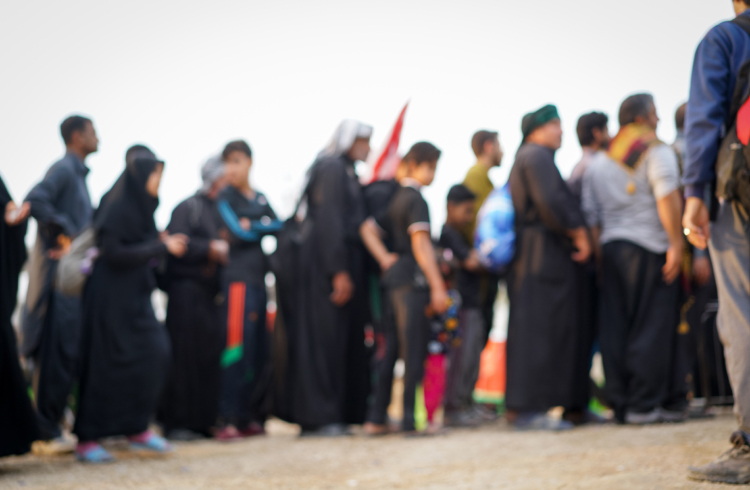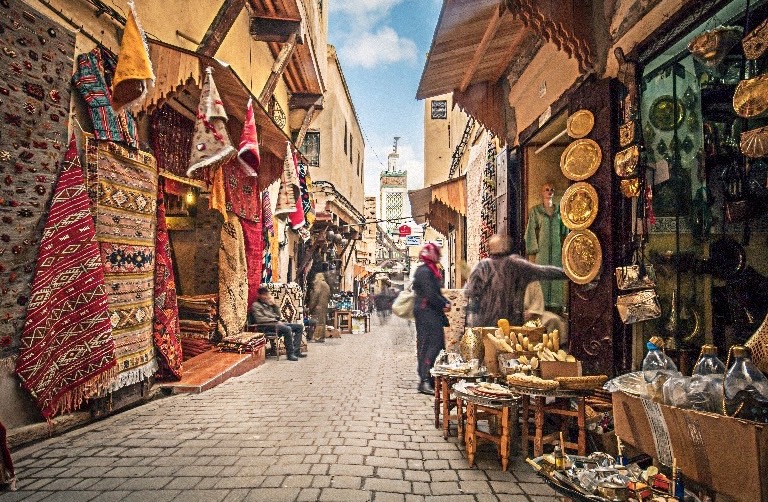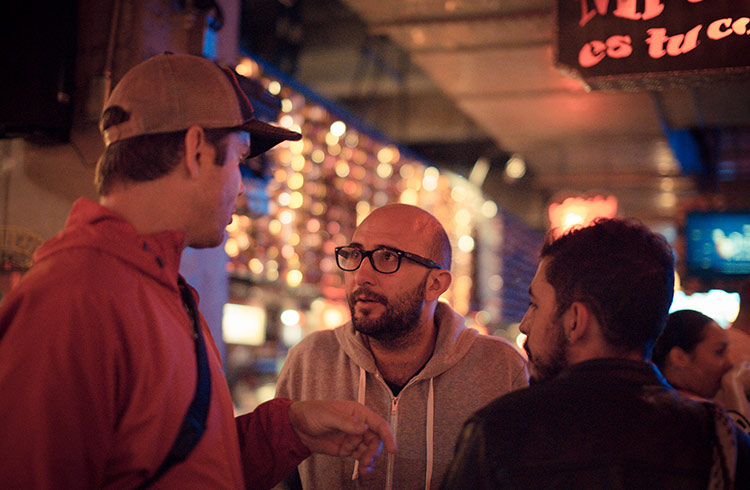World Refugee Day – What You Can Do To Make A Difference
As we travel, we can be ambassadors to increase awareness and recognition of the plight of refugees, and the rich additions they make to their adopted countries.
 Photo © Getty Images / Jasmin Merdan
Photo © Getty Images / Jasmin Merdan
In 2015, a European migrant crisis was declared. Around 1.3 million migrants applied for asylum in the EU member states, Switzerland, and Norway. This set a record high, nearly double the previous record set in 1992 following the fall of the Iron Curtain. Refugees fled to Europe from Afghanistan and Iraq, among other countries, with more than 440,000 of them going to Germany. Syrians by far topped the list, accounting for nearly one-third of all asylum seekers in Europe in 2015, total 378,000 refugees.
In the wake of the influx of these extraordinary numbers of people, a crisis was declared. Local economies, workforces, and housing in host countries floundered beneath the weight of the new migrants. However, the framing of this phenomenon is problematic. People were, and still are, understood through numbers and statistics rather than as individuals. Human lives are perceived as a crisis on a continent, rather than as human beings who were forced to flee unimaginable circumstances.
World Refugee Day, which falls on 20 June each year, is a day of remembrance and a call for action. A time to elevate the voices and the stories of individuals impacted by war, conflict, and natural disasters, who fled home in search of safety and new beginnings. To bridge the gap between “them” and “us” and simply connect through human nature. As travelers, conscious explorers of the world and seekers of culture, we can be ambassadors of awareness.
In light of the 2023 World Refugee Day (that has the theme 'hope away from home'), I spoke with Mohamad, a tour designer and guide with Refugee Voices Tours in Berlin. Refugee Voices Tours was founded in 2015 by refugees and activists with the intention of informing the public why so many refugees were forced to flee and seek refuge in Europe. Whether it be on your next trip to Berlin, or from afar virtually, join this innovative company on immersive walking tours. Experience a different side to this popular European city and understand why so many asylum seekers found themselves in Germany and Europe over the past decade.
Alicia: Can you tell me more about yourself and how you ended up in Berlin?
Mohamad: I’m originally from a small town outside of Damascus, Syria. I left in 2013 to go and find work elsewhere to support the rest of my family. My younger brother and I went to Libya and stayed there for about two years, where we built a business. Things were going relatively well until Libya itself, or Benghazi specifically, became a war zone. We lived through it for a couple of months and then decided to go to Europe because we didn’t know how long the conflict would last. Our Syrian passports were pretty much useless to go anywhere else legally besides Europe. Our parents were in Turkey, but we couldn’t even get to the airport to fly to them. The airport in Benghazi was not functional until mid-2015.
We ended up coming to Europe with smugglers on a fishing boat. First to Sicily, then to mainland Italy, and then on trains from Milan to Berlin. About seven months after submitting our papers, we were granted asylum.
Alicia: Can you elaborate on the situation facing refugees arriving in Germany?
Mohamad: It varied quite a lot depending on when they came, where they came from, and which state in Germany they went to. Not all conflicts were seen as equal or eligible for asylum. Before 2014 and 2015, Syrians were given asylum on the fly. It was typical to wait between seven months and a year to receive your papers. During that time, you’re not allowed to visit people in different cities or leave the camp for more than 40 hours.
Once you get asylum, you’re put through an integration course, which is mostly a German language course, for six months. And then you’re pushed to find work. They encourage you to certify the degree you already have, but it’s a tedious process. Many times, it’s easier to go back and study again than have your degree officially acknowledged. To give you a close example, my sister is a dentist and it took her nearly seven years to verify her degree. Their assumption was that Syrian education was bad, that you know nothing and need to start from scratch. This is a lot of loss of skill and makes it difficult for people to feel integrated. The last eight, ten years of their life was wasted, and they need to start basically over.
Alicia: How did Refugee Voices Tour first emerge?
Mohamad: In 2016, I met Lorna Cannon, founder of Refugee Voices Tours. The tour that Refugee Voices Tours was built on was led by refugees from Africa—like Libya and Sudan— who fell outside the system and would not be granted asylum. They organized a big demonstration in Oranienplatz in 2012. People built tents and were there for over a year (until April 2014). Eventually, the state decided to give more rights to refugees but since they didn’t fit that criteria, it didn’t apply to them.
Lorna knew the demonstrators and lived in the neighborhood where it was going on. There was a suggestion to build this tour for people to learn about the movement and its outcome. When I met Lorna, the tour was still running so I experienced it. It was so powerful and made me think: “How can we build something like this about Syria and allow people to learn about the Syrian conflict firsthand?” The idea was to use the history of Berlin to talk about some of the current events happening in Syria. We spent time putting it together, trying it, and adjusting the design. It’s been going on for almost seven years now.
Alicia: What do the tours aim to show to participants? How are they shaped by your personal experience?
Mohamad: I used to go to these dinners connecting people coming from different parts of the world. When they asked where I’m from and I said Syria, you could tell they have lots of questions but they’re not sure if it’s the right place or time. I figured the tours could be the platform for people to ask these questions.
The tour that I designed is called “Why We’re Here.” The whole idea is to try and answer this question. Why are there refugees in Europe and specifically, why are Syrians in Germany? We want to make what happened in Syria digestible. Why it happened and why it forced people to seek refuge all around the world. It’s like a crash course in the Syrian conflict but still related to Berlin and its rich history. Trying to relate pieces of history that people are aware of to something they have no clue about; to connect people so they don’t just see it as another conflict in the Middle East.
Alicia: What has been the impact you’ve seen from Refugee Voices Tours?
Mohamad: I honestly didn’t think it was going to go anywhere but it grew much bigger than I expected. It was timely as people were discussing the refugee crisis in Syria when the tour launched and gained momentum from there. We started on a weekly basis up to just before the pandemic. Now we are doing biweekly tours and hope by summer to return to a weekly basis.
Every time I question why I keep doing these tours, I’ll have a group or an individual in the tour that reminds me why I’m doing this. At the end of the tour, we go to a restaurant where people can process it and feel comfortable enough to ask questions. It becomes a discussion about the many nuances and layers to it. Which makes it much more lasting and helps them unpack any piece of news they may come across.
Alicia: What impact do you believe travelers can have in raising awareness around and having an impact on refugee-related issues?
Mohamad: I try to show them how much the humanitarian efforts they saw in 2015 and in 2022 were heavily motivated by politics and how the rhetoric can assign values and select who is deserving of being treated as human beings and who is not. And I try to leave an impact on them. Even if they can't change anything on a governmental scale, at least they detect the bias that exists in every political decision and hopefully inspire them to spread that idea and understanding to others.
Alicia: What message do you want to send to the public for World Refugee Day?
Mohamad: Nobody chooses to be a refugee. We were reminded by that again with the invasion of Ukraine where people went to sleep with all of their hopes and dreams for the next day and then they needed to leave. To show that nobody who has been displaced because of war is inhumane. I want people to Imagine themselves as displaced and how they would react, what they would do if the whole world started looking at and treating them differently just for the fact that they’re displaced. I am a refugee and am one of the privileged ones that had the chance to start over and the opportunity to have the platform to talk to people. This is not the case for the vast majority of refugees around the world.
Related articles
Simple and flexible travel insurance
You can buy at home or while traveling, and claim online from anywhere in the world. With 150+ adventure activities covered and 24/7 emergency assistance.
Get a quote


No Comments